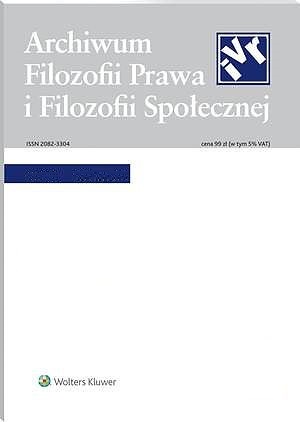Wpływ redukcji dysonansu poznawczego na treść prawa pozytywnego. Eufemizmy
The influence of cognitive dissonance reduction on the content of positive law. Euphemisms
Author(s): Sławomir PiekarczykSubject(s): Law, Constitution, Jurisprudence, Philosophy of Mind, Philosophy of Law, Philosophy of Law
Published by: Stowarzyszenie Filozofii Prawa i Filozofii Społecznej – Sekcja Polska IVR
Keywords: law-making; cognitive dissonance; cognitive dissonance reduction; Leon Festinger; euphemisms
Summary/Abstract: The written law is a result of collective normative decision. It is enacted by competent members of legislative body being people which aren’t free from their experiences and motives in the process of the enactment. Therefore the following question appears – what occurring processes at these persons can affect contents of the law. To find an answers (explanations), there is a need to go beyond classical law research, to the direction of outside integration theory of law and derive them from such a disciplines as psychology, sociology, political science, cognitive science and the other. Presented paper uses a theory of cognitive dissonance, derived from social psychology and developed by Leon Festinger (1957’) to formulate a hypotheses about the influence of cognitive dissonance reduction on the content of written law, which expressions may be euphemisms used by legislator.
Journal: Archiwum Filozofii Prawa i Filozofii Społecznej
- Issue Year: 12/2016
- Issue No: 1
- Page Range: 44-54
- Page Count: 11
- Language: Polish

